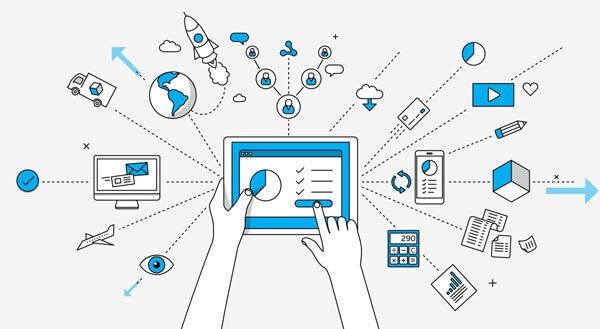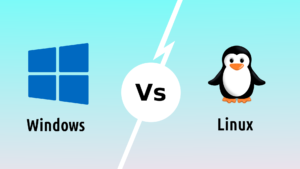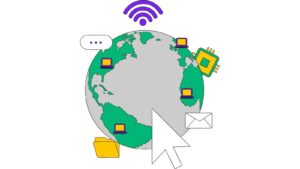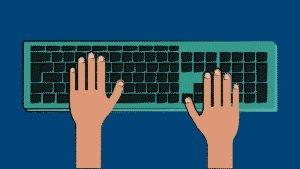Here’s a list of 100 basic computer-related questions and answers in English, perfect for beginners or general knowledge:
General Computer Knowledge
- Q: What is a computer?
A: A computer is an electronic device that processes data and performs tasks according to instructions. - Q: Who is known as the father of the computer?
A: Charles Babbage. - Q: What is hardware?
A: The physical components of a computer. - Q: What is software?
A: A set of instructions or programs used to operate computers. - Q: What is an operating system?
A: It is system software that manages computer hardware and software. - Q: Name any two operating systems.
A: Windows, macOS. - Q: What is a CPU?
A: Central Processing Unit, the brain of the computer. - Q: What is RAM?
A: Random Access Memory, temporary memory used for processing. - Q: What is ROM?
A: Read-Only Memory, permanent memory for system startup. - Q: What is a monitor?
A: An output device that displays information visually.
Input and Output Devices
- Q: What is an input device?
A: A device used to enter data into a computer. - Q: Name two input devices.
A: Keyboard, mouse. - Q: What is an output device?
A: A device that displays or outputs the result of computer processing. - Q: Name two output devices.
A: Printer, speaker. - Q: What is a keyboard used for?
A: To type data into the computer. - Q: What is a mouse?
A: A pointing device used to interact with the computer screen. - Q: What is a scanner?
A: A device that converts physical documents into digital format. - Q: What is a printer?
A: An output device that prints text or images on paper. - Q: What is a microphone used for?
A: To input sound into a computer. - Q: What is a webcam?
A: A camera used to capture video input for computers.
Storage Devices
- Q: What is storage?
A: The process of saving data and programs. - Q: Name a primary storage device.
A: RAM. - Q: Name a secondary storage device.
A: Hard disk drive (HDD). - Q: What is a hard drive?
A: A device used to store data permanently. - Q: What is a pen drive?
A: A portable storage device. - Q: What is a CD/DVD?
A: Optical storage media. - Q: What is a memory card?
A: A small storage device used in phones and cameras. - Q: What is cloud storage?
A: Online storage of data over the internet. - Q: Give one example of cloud storage.
A: Google Drive. - Q: What does GB stand for?
A: Gigabyte.
Software and Applications
- Q: What is system software?
A: Software that controls the hardware and basic operations. - Q: What is application software?
A: Software used to perform specific tasks. - Q: Give an example of system software.
A: Windows OS. - Q: Give an example of application software.
A: Microsoft Word. - Q: What is MS Office?
A: A suite of productivity software by Microsoft. - Q: What is MS Word used for?
A: Word processing. - Q: What is MS Excel used for?
A: Spreadsheets and data analysis. - Q: What is MS PowerPoint used for?
A: Creating presentations. - Q: What is a web browser?
A: Software used to access the internet. - Q: Name two web browsers.
A: Google Chrome, Mozilla Firefox.
Internet and Networking
- Q: What is the Internet?
A: A global network connecting millions of computers. - Q: What is a website?
A: A collection of related web pages. - Q: What is a URL?
A: Uniform Resource Locator, the address of a website. - Q: What does www stand for?
A: World Wide Web. - Q: What is email?
A: Electronic mail used for sending messages. - Q: What is Wi-Fi?
A: Wireless technology for internet access. - Q: What is a modem?
A: A device that connects a computer to the internet. - Q: What is an IP address?
A: A unique number assigned to a device on a network. - Q: What is downloading?
A: Transferring files from the internet to a computer. - Q: What is uploading?
A: Sending files from a computer to the internet.
Computer Security
- Q: What is a virus?
A: Malicious software that can damage data. - Q: What is antivirus software?
A: Software that protects a computer from viruses. - Q: Name one antivirus program.
A: Avast. - Q: What is a firewall?
A: A security system that monitors network traffic. - Q: What is phishing?
A: A fraudulent attempt to steal personal information. - Q: What is a password?
A: A secret code used to protect access. - Q: Why should passwords be strong?
A: To protect accounts from unauthorized access. - Q: What is two-factor authentication?
A: A security process requiring two types of verification. - Q: What is encryption?
A: Converting data into a secret code. - Q: What is data backup?
A: Making copies of data to prevent loss.
Basic Computer Operations
- Q: What is booting?
A: The process of starting a computer. - Q: What is shut down?
A: Turning off the computer safely. - Q: What is a file?
A: A collection of data stored as a unit. - Q: What is a folder?
A: A container used to organize files. - Q: What is a desktop?
A: The main screen of the computer interface. - Q: What is a taskbar?
A: A bar at the bottom of the screen showing open programs. - Q: What is copy and paste?
A: Copy duplicates data; paste inserts it elsewhere. - Q: What is drag and drop?
A: Moving files by clicking and dragging. - Q: What is a shortcut?
A: A link to a program or file. - Q: What is a recycle bin?
A: A place where deleted files are temporarily stored.
Programming and Coding (Basic)
- Q: What is programming?
A: Writing instructions for a computer to follow. - Q: Name a programming language.
A: Python. - Q: What is a code?
A: A set of instructions written in a programming language. - Q: What is a compiler?
A: Software that converts code into machine language. - Q: What is an algorithm?
A: A step-by-step procedure for solving a problem. - Q: What is debugging?
A: Finding and fixing errors in code. - Q: What is HTML?
A: A language for creating web pages. - Q: What is Java?
A: A high-level programming language. - Q: What is Python used for?
A: General-purpose programming. - Q: What is SQL?
A: A language used to manage databases.
Computer Abbreviations
- Q: What does CPU stand for?
A: Central Processing Unit. - Q: What does RAM stand for?
A: Random Access Memory. - Q: What does ROM stand for?
A: Read-Only Memory. - Q: What does USB stand for?
A: Universal Serial Bus. - Q: What does LAN stand for?
A: Local Area Network. - Q: What does WAN stand for?
A: Wide Area Network. - Q:What does WWW stand for?
- A: World Wide Web.
- Q: What does URL stand for?
A: Uniform Resource Locator. - Q: What does HTTP stand for?
A: HyperText Transfer Protocol. - Q: What does ISP stand for?
A: Internet Service Provider.
Miscellaneous
- Q: What is a GUI?
A: Graphical User Interface. - Q: What is multitasking?
A: Running multiple applications at the same time. - Q: What is a spreadsheet?
A: A table used to organize data. - Q: What is a presentation software?
A: Software used to create slideshows. - Q: What is database software?
A: Used to store and manage data. - Q: What is resolution in a monitor?
A: Number of pixels displayed. - Q: What is a server?
A: A computer that provides services to others. - Q: What is a client computer?
A: A computer that accesses services from a server. - Q: What is an app?
A: A software application. - Q: What is digital literacy?
A: The ability to use digital technology effectively.
Would you like this as a printable PDF or quiz format?



